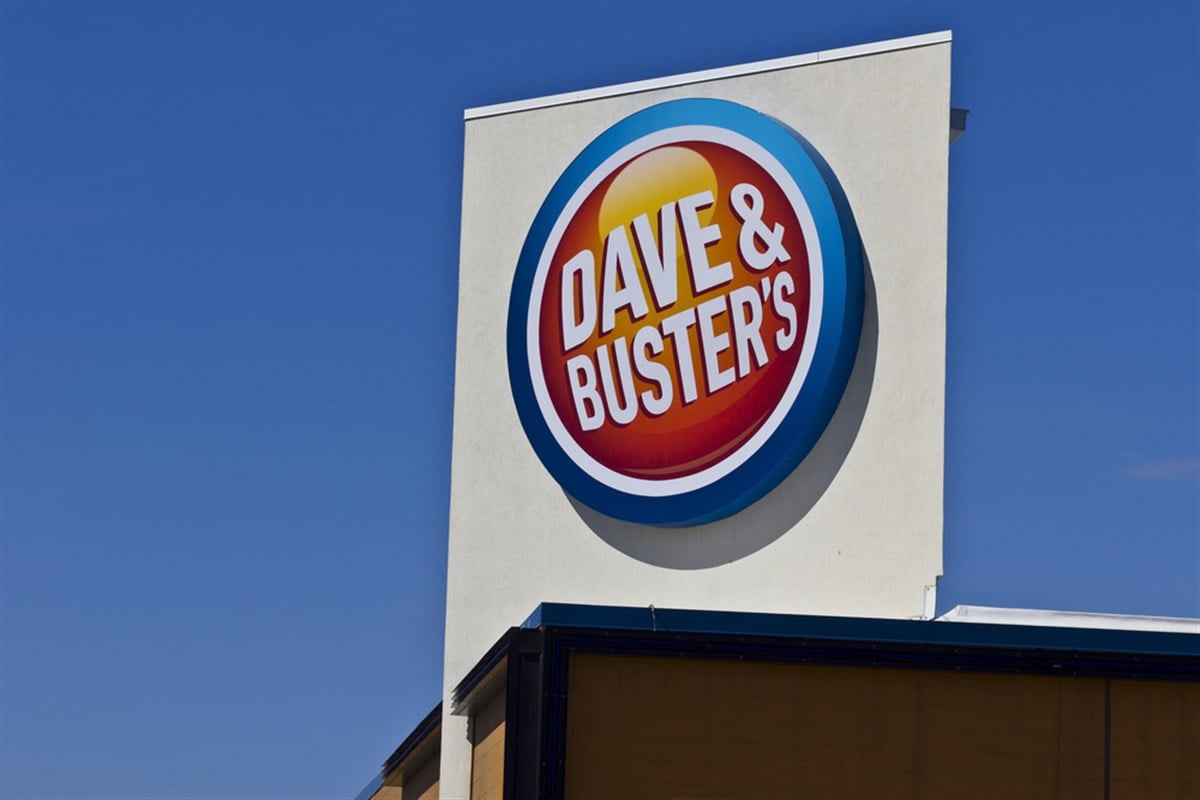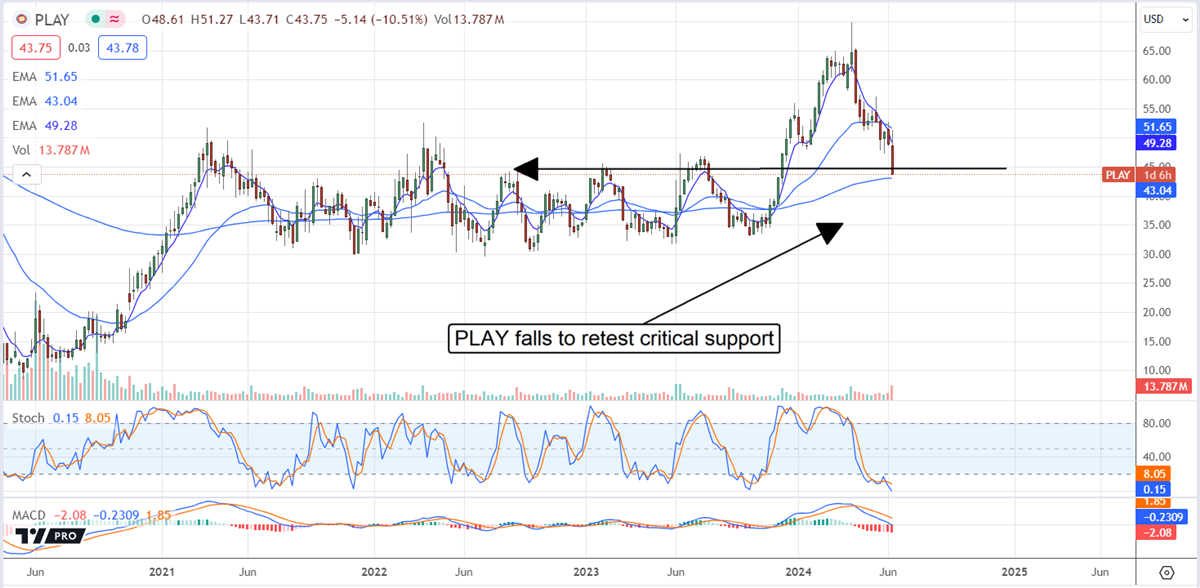
Dave & Buster’s Entertainment’s (NASDAQ: PLAY) Q1 report left something to be desired but did not give sufficient reason to sell off the way it did. While sales are sluggish and margins are weakened, mitigating factors include remodeling efforts, investments in efficiency and growth, and solid cash flow that drives shareholder value. Shareholder value is seen in the balance sheet and robust capital return, improving shareholder leverage in leaps and bounds.
Dave & Buster's Entertainment Falls On Weak Results
Dave & Buster’s struggled in Q1, with comps falling more than expected and business investment cutting the margin. The company reported $588.1 million in net revenue for a decline of 1.5% compared to last year, missing the consensus estimate by 450 basis points.
However, the decline is small given the company’s growth over the past two years, which is over 30%. At the current level, Dave & Buster’s business is more than 60% larger than in 2019, while the stock price aligns with comparable levels, suggesting a deep value opportunity. Comps are down 5.6%, offset by adding six new stores, providing leverage as the year progresses.
Margin news is mixed. The company’s margin shrank in all comparisons to leverage the decline in the bottom line. The adjusted $1.12 in earnings is down 22% compared to last year and missed consensus by $0.58, leading the market to fall. However, the contraction is largely due to $10 million in one-off spending to aid the company’s growth.
Dave & Buster’s does not give specific guidance but is expecting to accelerate store openings as the year progresses and is advancing its international expansion. The company signed a new letter of intent for five stores in the Philippines, bringing the pipeline total to seven countries and thirty-eight stores, four of which are expected to open within the next twelve months. Regardless, execs affirmed their resolve to hit $1 billion in annual EBITDA within the next few years.
Dave & Buster’s Had a Cash-Flow Negative Quarter
Dave & Buster’s had a negative cash flow quarter due to its investments. However, the cash flow was positive when adjusting for the $10 million in labor and marketing costs associated with the new store roll-out. Even so, the impact on the balance sheet was minimal, allowing the company to sustain its fortress-like quality and aggressively repurchase shares.
The company isn’t paying a dividend, but buybacks in Q1 totaled $50 million, worth 2.4% of the count and aided a 14.1% reduction in the average quarterly count. Because cash flow is solid, the company is on track to grow, margin improvement is expected, and the repurchase authorization has $150 remaining, investors should expect aggressive repurchasing to continue and possibly spike now that shares have been discounted.
Undervalued Dave & Buster’s Has a Double-Digit Upside Potential
Analysts' reaction to the news is tepid. The few revisions tracked by MarketBeat include lowered price targets but no downgrades. The takeaway is that the stock is pegged at a firm Moderate Buy and deeply undervalued relative to the consensus. The consensus estimate implies a 45% upside but is falling; the low target is among the freshly set and the more important figure to watch. It implies a 25% upside for this discretionary stock.
The technical action in Dave & Buster’s stock is range-bound. The market has moved sideways within the range since mid-2019 and is now heading to test support at the mid-point. The mid-point provided significant resistance between 2021 and 2023 but was broken late last year. In this scenario, the market should continue to support the stock near this level, which will lead to a rebound later in the year, but there is a risk of a deeper pullback. If support fails to hold at $33, shares of PLAY could fall to the low-end range, where they would present an even deeper value for investors.
